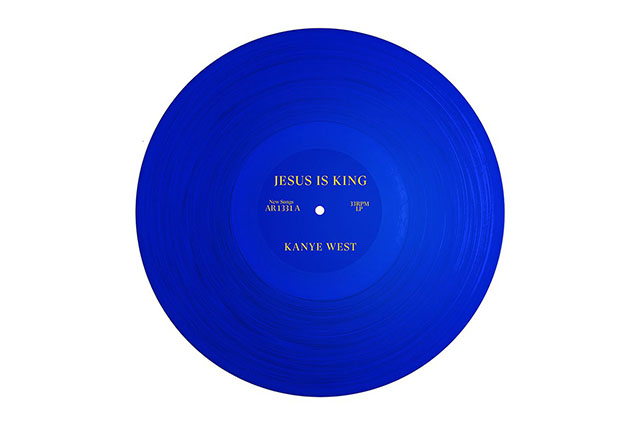
Kanye’s irrefutable egoism impedes his artistic focus on his new gospel-inspired album, “Jesus is King”.
Kanye delivers his highly anticipated ninth album, following an exceptionally prolific 2018.
Last year saw Kanye return to production, providing instrumentals for several successful hip-hop records, such as the widely celebrated “Daytona” by Pusha T. He also paired up with protégé Kid Cudi for one of the standout records of the year, “Kids See Ghosts”, and topped off the year with his eighth solo effort, “Ye”.
Despite each of these projects lasting approximately 20 minutes, in the holistic sense they constituted an impressive artistic marathon for one of modern music’s most inventive minds.
This musical streak proved quite astonishing, as it required Kanye to maintain artistic focus despite being perpetually scrutinised under the public eye. Kanye’s bipolar disorder became apparent after a series of unhinged interviews, the surprising embrace of Trump and Candace Owens.
“Jesus is King”, like Kanye’s other recent efforts, maintains the feeling of being borne out of this chaos; however, it fails to leave a similarly satisfying imprint.
The release of “Jesus is King” came as a surprise, as it is the product of an abrupt change in artistic direction. Kanye scrapped his album conception “Yandhi” after months of promotion, deciding to make a more pious approach to his latest work.
Unfortunately, this hurried readjustment in artistic focus results in a cumbersome dichotomy of gospel and rap. With Kanye’s embrace of Christianity, as well as his famed weekly Sunday Service performances, one must ask: Why wasn’t this album the plan all along?
Despite the deeply religious tone of this album, the pious expressions of this album fail to maintain the narrative of religious adoration; instead proving to be a new lens for Kanye to communicate his personal faith through.
Although Kanye references Jesus a multitude of times on this LP, even going as far to avoid swearing altogether, I believe the subtext of this album speaks more on Kanye’s mental health than any religious topics. In an expedient fashion, Kanye seems to use his faith as an instrument to indulge in his persecution complex.
The track “Hands On” is proof of Kanye’s inability to stop his ego impeding discourse of the supposed topic at hand. While the track contains impressive sonic textures, such as heavily manipulated vocals and icy synth swells, the reductive lyrics seem to break the fourth wall as Kanye refutes criticism of his artistic shift to gospel rap.
Kanye goes as far as to draw parallels between the public disapproval of his actions and the betrayal and mistreatment of Jesus Christ on the track “Salah”, which is subjectively one of the superior cuts on this LP. The track features chilling organs, harmonious choirs and climactic instrumentation.
The track “Use This Gospel” is also worthy of mention, featuring an unorthodox saxophone solo from Kenny G. The track also serves as a platform for the reunion of Clipse, a duo comprised of Pusha T and his brother.
Though the remainder of the album features many miscalculated lyrics (cough cough: “Closed on Sunday”) and lacking thematic structures, elements of certain songs shine through, such as the groove on “Follow God”, the shiny keyboards on “On God”, and Ty Dolla Signs vocal harmonies on “Everything we Need”.
“Jesus is King” proves to be a strange, pivotal creative crossroad for Kanye; does this album serve as a sluggish turn in the right direction for Kanye, or are we facing the demise of Kanye West’s career?
Eamon Goonan
Image Credit: Kanye West Album Cover



